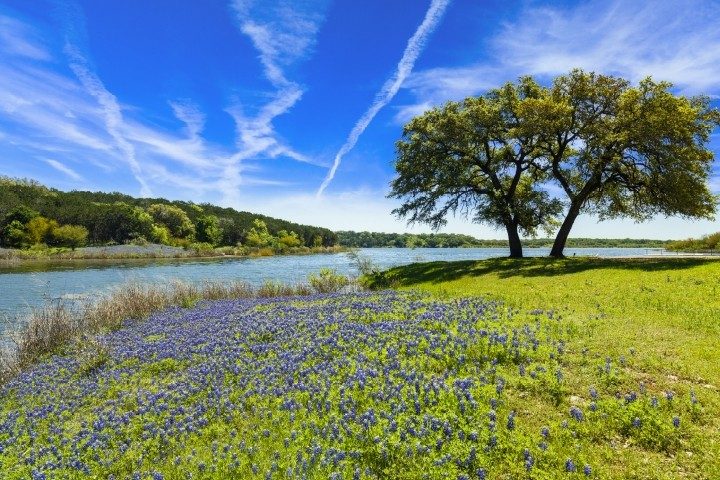
Call it the Department of the Inferior. For this may be appropriate after Department of the Interior employees were seen beginning a Zoom meeting with “land acknowledgements” and the relation of “their” pronouns.
Appearing first in video of the meeting, which took place recently, is Laura Daniel-Davis, principal deputy assistant for land and mineral management. Obviously reading a prepared statement, she said, “[I] recognize that I live and work within the ancestral lands of the Anacostans in the Anacostia and Potomac River watershed. I acknowledge the place-based knowledge of these peoples, and I’m grateful for their ancestral and current stewardship of these lands.”
Huh? Do the Anacostans today really have more “place-based” knowledge of Washington, D.C., than any other locals? And if they’re the current stewards of the land, why do we need the Department of the Interior (DotI)?
“My pronouns are ‘she,’ ‘her,’” Daniel-Davis then informed us.
Next was Nada Culver, a climate-change alarmist and the DotI’s deputy director of policy and programs. “My pronouns are ‘she’ and ‘her,’” she announced. “And I recognize that I live and work within the ancestral lands of the Cheyenne and Ute people,” she continued, not seeming too excited. “I acknowledge the place-based knowledge of these people, and I’m grateful for their ancestral and current stewardship of these lands.”
Last was Amanda Lefton, the director of the Bureau of Ocean and Energy Management. Her pronouns also are “she” and “her,” and, you guessed it, except for the Indian tribes cited — her task was to throw a bone to the “Haudenosaunee” (Iroquois) and Mohicans — her acknowledgement was a carbon copy of the first two (video below).
You may suspect that these women were merely performing job-preserving, woke rituals. Yet they then had too many “shes” and “hers.” They should consider “zie” and “zir” instead; embracing them could win a promotion.
Then, were their mouthed acknowledgements satisfactory? Not according to Michigan State University’s “Native American Institute.”
“There are hundreds of Indigenous communities across the United States,” it writes. “Giving a land acknowledgement requires research and reflection to understand the historical and contemporary Indigenous communities having a relationship with the land.”
The institute then emphasizes a few sentences later, “Although land acknowledgements are powerful statements, they are only meaningful when they are coupled with authentic and sustained relationships with Indigenous communities and community-informed actions.”
(Reading a prepared statement rote-style doesn’t qualify.) So you have much work ahead of you, DotI ladies.
But much more can be said here. First of all, sexual devolutionary snowflakes, you don’t have pronouns.
Our language has pronouns.
And you don’t get to “re-imagine” English because you’ve fallen for a fad (not if sane people prevail, anyway).
As for “land acknowledgements,” I won’t rehash what I wrote on the topic in February except to say that all nations are built on “indigenous” land, American Indians “stole” real estate from each other, and that Europe also was forged from conquered tribes (e.g., Alans, Goths, Marcomanni). Instead, I’ll point out that what we really need today is a Western Civilization Acknowledgement. It would go something like this:
I recognize that I live and work in a land birthed by Western Civilization. I acknowledge the place-creating knowledge and knowhow of Western people, and I’m grateful they bequeathed to me world history’s greatest civilization. I’m also grateful for the unprecedented prosperity, human rights, just liberties, and knowledge of Truth that their tireless endeavors ensured I could enjoy.
Yet even this would be missing the point. Question: When you consider this giving of thanks that is a land acknowledgement, of what does it remind you? What could it be taking the place of?
In keeping with G.K. Chesterton’s observation “Thanks are the highest form of thought,” people surely are happier when they’re grateful. History also teaches that man has a need to unburden himself of sin. Yet these needs were in saner times satisfied the only way they can be: by giving thanks to God and asking His forgiveness.
Yet in this secular age in which people essentially embrace the Protagorean notion “Man is the measure of all things,” man is the focus. So the guilt-ridden can only give thanks to other people, or things (e.g., “nature”), and ask their forgiveness.
Ergo, land acknowledgements.
And, ergo, the BLM-brainwashed white Americans who’d get on their knees before their black countrymen and ask for pardon.
We should spend some time on our knees, but only before God. When you bow to other men you always, one way or another and eventually, end up bowing to tyranny.


